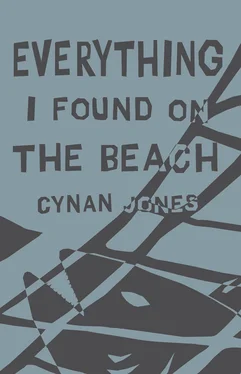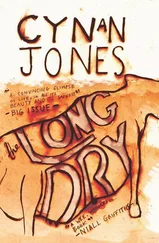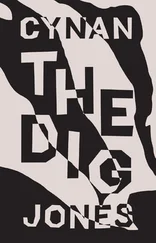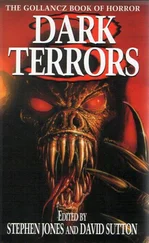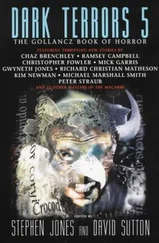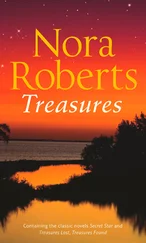“Where did you say you were headed?” asked the policeman.
“To a friend.” Hold picked a place out of the air, hoping it was far enough from them.
“What’s the address?” The policeman had the notebook out and was waiting for the address.
“I don’t know,” said Hold. “I couldn’t tell you.” He made this huge gamble. “I could drive you there, but I’ve no idea of the actual address.”
Hold thought of his box of things on the shelf. Had a vision of Cara finding them. Had a vision of him having achieved nothing more than turning himself into a greater burden to her, a dead weight in jail she would feel tied to. The policeman looked at him and closed the notebook.
“We’ll need you to present your gun license along with your other documents, when you take them in,” he said.
“Of course,” said Hold. He could feel his pulse smash in his chest now, hoping it didn’t show all over him.
The policeman leaned into the window.
“Shoot those yourself, did you?” said the police, nodding at the rabbits on the seat.
“Two-two,” said Hold. “Not a shotgun.”
The policeman nodded as if he understood. There was this rich stream of adrenaline through Hold like he had too much blood.
You’ve chosen. Right there. That was it. You cannot consider any doubt any more.
“Well, thank you for your cooperation, sir. You can go on your way.”
“That’s fine,” said Hold. “Have a good day.”
He got in the van and started the engine and waited for the police to drive off but they flashed him on.
He let a car go past and pulled out and they pulled out behind him and stuck to him again as if they were waiting for him to slip up. He could see the one not driving on the radio.
“They know,” he thought. “They’re going to stop you again. They’re just waiting.” Then they closed in on him and overtook, and disappeared ahead on the straight.

“Why? Why did I make this choice?” Grzegorz thought. But he knew. “I know why I made this choice. You always have to wait in line. All my life I’ve been waiting in line. Wait your turn, know your place. That’s all there is. I wanted to change something.”
Grzegorz held the compass in his hands and pressed the buttons uselessly. He was totally and absolutely lost on the utter pitch darkness of the sea. Only the compass screen glowed, with this factual light. He felt the urge to cry, like a distant need he still associated with childhood. He felt defiant little angers in him. He felt pricks of hope. Fear. But he could not hold on to any of them, not on to one single emotion. Then it was like he shut his eyes to them.
The sun had seemed to drop quickly.
He waited with the others outside the gates. He had just come off shift, had peeled off the once-white overalls, now, by the end of shift, plastered in blood and tissue. It was cold outside the gates, but a different cold from the deliberate cold inside of the abattoir where the fresh blood was like warm water on his hands and he welcomed that warmth.
Had he known then, waiting there, smoking, that it would come to this? Had he, underneath, the understanding of this? He had felt it. He had ignored it. He had jumped off the bridge.
The sweat dried on his body and he felt the cold go. He thought of the different types of cold, the cold of the fields at home that was so complete it was almost imperceptible until you felt your bones ache, your teeth throb. He thought of the salt-laden cold of the bracing space of the beach, the cold gritty sand between his fingers, the sense of the slow vast fridge of water. Even the way the gulls were colored, in gray shades.
“I have to stop thinking of the cold,” he told himself. He had one or two cigarettes and he lit one.
“They bullied me, but that was fine,” he thought. “It’s not my reason for doing this. I can’t pretend it is. I just had this hope, that’s all. They didn’t drive me to this.”
The small sepal of the boat showed up in the glow of the indrawn cigarette.
He thought of fires as a child. There were always fires. He thought of the great stack of dirty straw smoking in the field, the smell of it drifting on the subdued autumn breeze.
“I couldn’t have stayed,” he thought. “A man has to try to improve things.”
He finished the cigarette. He felt nothing now. The problem had stopped feeling real. He was at that stage when he believed he had overreacted. Maybe it was the cigarette. It just brought a little calmness. He threw it into the sea and the pitch blackness came around him again.
He took the compass out from inside his puffer jacket where he’d put it to warm, thinking it might have frozen in the cold.
“Can electricity freeze?” he wondered. He had this picture of lightning coming down into the stubble fields, the glorious momentary frozenness of it, the whitening of the air around.
The compass’s square of clinical light was mesmerising, hypnotic, the only point of reference in the dark. He used the luminance torchlike to look for anything that might work to press within the tiny reset hole. There was nothing. There was just nothing on the boat.
“Your friend talked to you?”
“Yes, he talked to me.”
“You want the work?”
He’d nodded.
“How much did he say? How much did he tell you?”
“Everything, I think.”
He’d been momentarily distracted by a cloud of egrets that lifted off the beach and flew strangely away, their necks folded. They didn’t seem to fit there in that place, seemed too beautiful, like some anomaly.
“He told you of the risk?”
“Yes.”
“Your family?” The man had repeated the requirements.
Grzegorz looked down at the compass, sure the light was fading, sensing in his hand the battery draining out. He thought of the passivity of the cows, going to the stun plate.
“I understand…”
They watched the trucks come in. As they waited for the driver to pick them up, a long truck packed with lambs came through and went in through the big zinc gates and as they passed, Grzegorz saw the stubborn, incomprehensible eyes. They were mad, somehow.
“I understand.”

A little way down the road he stopped again. The adrenaline of the police stop had rolled up in him and he felt queasy, travel-sick almost. He’d gone through the quarry towns, set precariously in amongst the banks of scree, and there was something megalithic in them, some sense of his own smallness as the mountains grew bigger. He felt tiny against them, and against the massive industry man was capable of.
“I should have left something for Cara,” he thought. “What if I don’t get back?” He felt that he was drawing all his sentiments and knowledges of this thing from some Sunday afternoon Western now, overdramatizing it. It did not feel real. With the tiredness and the driving and the ebbing adrenaline, everything suddenly became surreal in one gutting flash, and he felt absolutely out of his depth and angry about being given this chance. How could he turn away from it? Everything was at stake now. It had been delivered up to him and given him the possibility of things.
He felt dizzy and stopped the van, pulled up into a gateway. Like some chasm, the valley and the dark lake sat before him. He got out of the van and stared down into this drop, this void. He had a vision of himself angry, saw himself scream and smash things, had this great feeling for the need for release. The phrase was going over and over in his head. Checkham. Prosser checkham. “You stupid boy,” he thought. “You stupid, stupid boy.” But still he couldn’t beat out the phrase that was becoming like a little song in him, as if the packets were calling somehow.
Читать дальше
